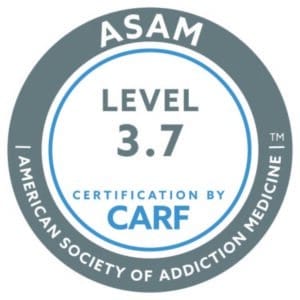Alcohol addiction is a pervasive issue affecting millions worldwide. It not only impacts the individual physically and mentally but also strains relationships and work life. Understanding the journey through alcohol rehab, including the challenges of withdrawal and detox, is crucial for those seeking a path to recovery.
Alcohol addiction, or alcoholism, is a chronic disease characterized by an uncontrollable urge to consume alcohol despite negative consequences. It can lead to severe physical and mental health issues, including liver disease, cardiovascular problems, depression, and anxiety.
The First Step: Acknowledging the Problem
The journey to recovery begins with acknowledging the problem. This can be the hardest step for many, as it involves confronting denial and the stigma surrounding addiction. Seeking support from loved ones or a professional can provide the necessary encouragement to take this vital step.
Choosing the Right Rehab Program
Selecting an appropriate rehab program is essential. Programs vary in their approach, duration, and intensity. Some offer inpatient treatment, providing 24-hour care in a controlled environment, while others offer outpatient services, where individuals can maintain certain aspects of their daily life.
Alcohol detoxification is the process of removing alcohol from the body and is the first medical intervention in the rehab process. It’s a critical phase as the body adjusts to the absence of alcohol, leading to withdrawal symptoms.
Understanding Withdrawal Symptoms
Withdrawal symptoms can range from mild to severe and include anxiety, tremors, nausea, insomnia, and in severe cases, delirium tremens (DTs), which can be life-threatening. The intensity of these symptoms often depends on the duration and severity of the alcohol addiction.
Medical detox provides a safer and more comfortable way to go through withdrawal. It involves medical supervision and may include medication to ease withdrawal symptoms, reduce cravings, and address co-occurring mental health conditions.
The Role of Therapy in Rehab
After detox, therapy is essential in addressing the underlying causes of addiction. Therapies such as Cognitive Behavioral Therapy (CBT), group therapy, and family counseling can help individuals understand their addiction triggers, develop coping mechanisms, and repair damaged relationships.
Developing Coping Strategies
Rehab programs focus on teaching coping strategies to prevent relapse. This includes stress management techniques, lifestyle changes, and building a supportive network. Patients are encouraged to participate in activities that promote physical and mental well-being, such as exercise, meditation, or hobbies.
The Importance of Aftercare
Recovery doesn’t end with the completion of a rehab program. Aftercare is crucial in maintaining sobriety. This may include ongoing therapy, support groups like Alcoholics Anonymous (AA), and regular check-ins with a counselor or a support network.
Support from family and friends is invaluable in the recovery process. They can provide emotional support, help in identifying triggers, and keep the individual motivated. Family therapy can also be a part of rehab, helping to heal relationships and build a supportive home environment.
Lifestyle Changes for Lasting Recovery
Long-term recovery often involves lifestyle changes. This can include adopting a healthy diet, engaging in regular exercise, pursuing new hobbies, and building a supportive social circle. These changes not only support sobriety but also improve overall quality of life.
The Power of Positive Thinking
Positive thinking plays a significant role in recovery. Building a positive outlook and setting realistic goals can boost confidence and motivation, essential for navigating the challenges of rehab and recovery.
Alcohol rehab is a comprehensive process that requires commitment, patience, and support. It involves facing the challenges of withdrawal and detox, understanding the root causes of addiction, and building a strong foundation for a sober, healthier future. With the right support and determination, long-term recovery is achievable, opening the door to a fulfilling and alcohol-free life.
This journey is not just about overcoming addiction; it’s about rediscovering oneself and rebuilding a life with new priorities, relationships, and goals. The path may not be easy, but the rewards of regaining control over one’s life are immeasurable. If you or someone you know is struggling with alcohol addiction, remember that help is available and recovery is possible.












